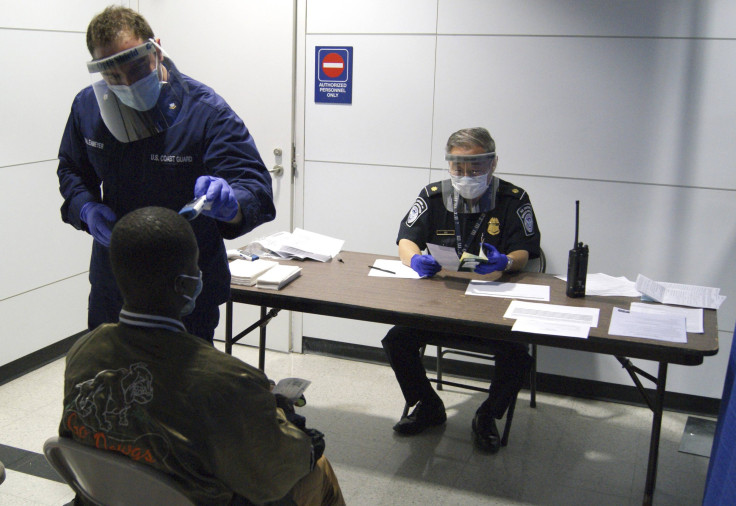Ebola Outbreak Travel Map: Which Airports Are Screening For Ebola

Fears of the Ebola virus spreading globally are high as the number of Ebola cases nears 10,000. The latest situation report, released Wednesday, of the World Health Organization put the total cases at 9,936 cases with 4,877 deaths as of Sunday. The outbreak is heavily concentrated in Liberia, Sierra Leone and Guinea, and, after 42 days of no new cases, the WHO officially declared Senegal and Nigeria free of the virus. However, such successes in controlling the epidemic have done nothing to calm the nerves of Americans. Despite only having two confirmed cases, both in Dallas, one-fifth of Americans worry about getting the disease.
Much of the worry surrounding the spreading virus is focused on air travel. A new study published in the journal Lancet outlines the ease with which the virus can spread through international flights. The study takes travel restrictions and safety measures already implemented into account but still projects that 2.8 passengers infected with Ebola would fly from Liberia, Guinea and Sierra Leone, on average, every month.
Adding airport screenings still isn't enough. According to a report in the British Medical Journal, enhanced screenings in airports will prove futile. The long incubation period means an infected person can go up to 21 days without showing any symptoms and can pass through enhanced screening procedures without setting off alarms. In response to growing concerns, travelers flying from affected countries are being routed through five U.S. airports that have been specially prepared to deal with the virus: Hartsfield-Jackson Atlanta International Airport; Chicago O'Hare International Airport; John F. Kennedy International Airport; Newark Liberty International Airport; and Washington Dulles International Airport. Starting on Monday, the Centers for Disease Control and Prevention will implement a "21-day watch" to monitor all travelers from countries with widespread Ebola outbreaks.
More than 40 international airports are now screening for Ebola. Take a look at the map below to see which countries are taking extra precautions. You can see more information about the number of WHO-confirmed cases by clicking on a country.
Are there countries who are screening for Ebola that we missed? Let us know in the comments section.
© Copyright IBTimes 2025. All rights reserved.






















